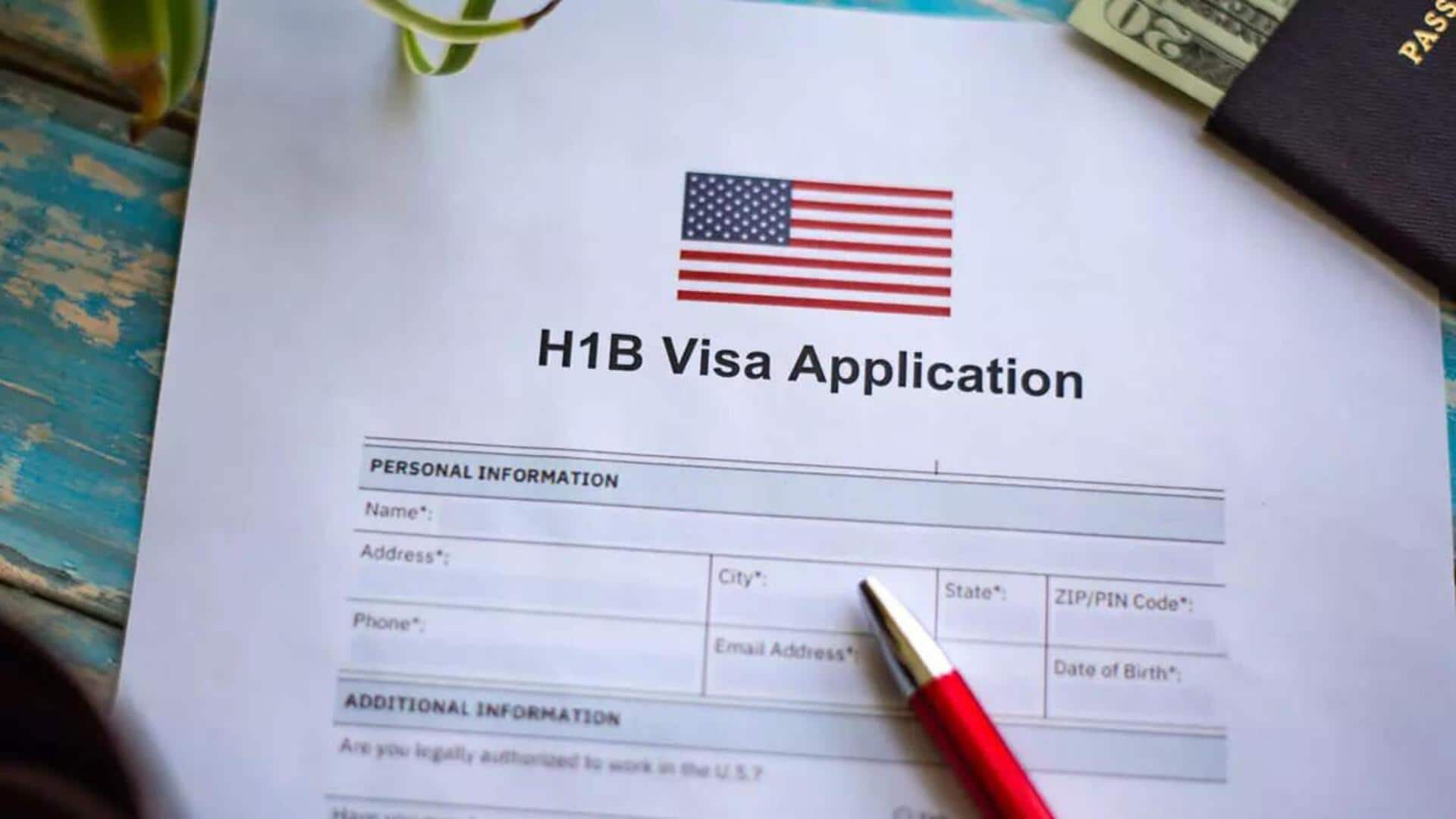
US eases H-1B visa rules, Indian tech professionals to benefit
What's the story
The US government, under outgoing President Joe Biden, has relaxed rules for H-1B visas.
The Department of Homeland Security (DHS) announced the change with an aim to simplify the hiring process for American companies, looking to hire foreign workers with specialized skills.
The move is likely to benefit thousands of Indian tech professionals to get high-paying jobs in the country.
Business impact
New rule enhances global competitiveness of US companies
The new rules aim to make US companies more globally competitive by making their hiring practices more business-oriented.
It simplifies the approval process and gives employers greater flexibility in retaining talent.
The rules also make the transition from F-1 student visas to H-1B visas smoother, which is especially advantageous for students from countries such as India and China.
Implementation
Updated Form I-129 to implement new H-1B visa guidelines
To enforce these new guidelines, an updated edition of Form I-129 will be available from January 17, 2025.
All petitioners applying after this date will have to use the updated form.
Secretary of Homeland Security Alejandro N Mayorkas said, "American businesses rely on the H-1B visa program for the recruitment of highly-skilled talent, benefiting communities across the country."
Eligibility
What about entrepreneurs?
The new rules have also updated the definition of an employer. Now, entrepreneurs can get their H-1B visa sponsored by their own company.
The DHS stressed that these improvements seek to meet the labor needs of American businesses while continuing to protect US workers.
United States Citizenship and Immigration Services (USCIS) Director Ur M Jaddou said modernizing the program supports America's growing economy, by ensuring employers can hire skilled workers needed for growth and innovation.
Cap clarification
Changes resolve ambiguities about cap exemptions
The DHS clarified nonprofit and governmental research organizations would now be defined by their "fundamental activity" being research. These bodies are exempted from the yearly statutory limit on H-1B visas.
The changes also strengthen program integrity by codifying USCIS's authority to conduct inspections and impose penalties for non-compliance.
Employers must establish a bona fide position in a specialty occupation available as of the requested start date, and petitioners must have a legal presence in US courts.